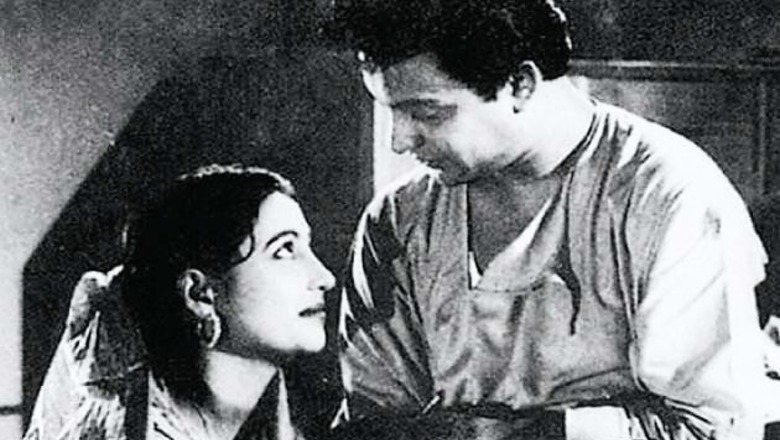
views
Greta Garbo was born on September 1905 and died in 1990 at the age of 84. But for almost half a century before that, she was a recluse, choosing her life in seclusion as she famously remarked once - "I want to be let alone." She shot into fame in the 1920s and 1930s, never got married, yet linked to many men of her times. Professor of Indian Cultures and Cinema at the School of Oriental and African Studies in London, Rachel Dwyer explains, "There may be two major reasons - one is that some stars, usually very beautiful, hate seeing themselves grow old. Some probably find it harder than the rest of us to deal with these changes.
"However, others may want to escape their own beauty and the image of them created by publicity in the media or made by their studios and the public's concept of them created by the roles and the way they were presented in the films themselves. Some may want to conceal something such as their private lives or their sexuality."
She continues, "Garbo wasn't a true recluse in the sense she went out in public, unlike Howard Hawks. I think the true recluse may well suffer from mental illness rather than making a decision to do - or not to do - something. It's also a paradox of film that the star is always present - on film - but absent because they're not actually there. Maybe this makes us even more intrigued when they become reclusive in real life while we still have their screen images."
The reference of Garbo always resurfaces whenever one thinks of India's own answer to her, Suchitra Sen. While Sen was born in undivided Bengal (now in Bangladesh) on April 6, 1931, she has been a successful recluse for well over the last three decades. Unlike Garbo, Sen never made any public appearance ever since she went behind curtains. There have been umpteen attempts by the press to bring her out, to get a glimpse of her private life, to demystify the mystery. Sen went on to refuse the Dada Shaheb Phalke award (since she was not ready to accept it in person in New Delhi), the highest conferred by the Government of India in the field of cinema in 2005.
Starting off in 1952 with Shesh Kothay which never got a release, Suchitra Sen came to the notice the following year with two very different roles - as Bishnupriya, the wife of Sri Chaitanya deb in Bhagaban Srikrishna Chaitanya and as Romola in the hilarious and an evergreen box-office hit Saare Chuattor. Saare Chuattor is the film which launched the Suchitra Sen - Uttam Kumar pair even though they were not the main attraction of the film. The Tollygunje industry was then looking for a new hero and a new star couple to bank on following Pramathes Barua's stupendous popularity and Kanan Devi's lilting ebullience. The rest of the '50s saw history being made in the Bengali film industry with Uttam Kumar and Suchitra Sen being the first superhit couple on screen - the 20 odd films in that decade gave them prominence and stardom which probably no other stars till date can match.
With Sagaraika, Sapmochan, Sabar Uporey, Shilpi, Harano Sur, Pathe Holo Deri, Jiban Trishna, Indrani, Chawa Pawa to name a few the duos mesmerized the Bengali audience. With the Nehruvian ideal of a nuclear family for modern India getting popular as a concept, most of these films veered round the village boy finding settlement in the urban Indian city - and again it is the man-woman couplet which faces off the societal struggles, the modern partnership which is self-sufficient and less dependent on the greater support from the joint-family back in the village. Coupled with soulful music and Hemanta Mukherjee's unmistakeable melody playback for Uttam these films are still holding a lot of attention when telecast in Television, albeit mostly to the older generation.
It is interesting to note that during this first decade itself it was Suchitra who ventured outside of Bengal to the Hindi film industry in Bombay - a phenomenon not prevalent among Bengal actors back then. Most notable amongst these is Sen's remarkable portrayal as Paro in Bimal Roy's legendary Devdas(1955) which immediately brought her into national limelight.
Two years later Suchitra featured in Hrishikesh Mukherjee's debut Hindi film Musafir which was written by none other than Ritwik Ghatak. In 1960 Suchitra Sen paired opposite of Dev Anand in Bombai ka Babu and Sarhad making her an eminent presence in Indian cinema.
The 1960s reflect as an interesting decade not only for Suchitra Sen but also for Uttam Kumar and the Bengali film industry. Suchitra didn't appear in any notable production in that decade in Hindi, her creative association with Uttam somewhat seemed to start waning off as well - reasons best unknown.
While the star couple acted in 20 films in the first decade ('50s) which were mostly all run-away hits, they partnered in only 4 in the '60s and same number the decade after. In Saptapadi (1961) Bengali screen probably saw one of its biggest hits and the same for the star-couple as well.
However, for both Uttam and Suchitra it seems there was some sort of urgency to prove to the audience and critics that they can be hits on their own and when not associated with each other. While Uttam Kumar went to dizzy heights as an actor with Satyajit Ray's Nayak and a host of others which put him up in the pedestal not only as a star but also as one of India's finest actors of all times, Suchitra's trajectory in female-centric roles also created a niche space for itself. The process started off with Deep Jwele Jai (1959) where Suchitra played a nurse in a mental hospital who got involved with a patient. Her strong performance made the film poignant and it was later remade in Hindi as Khamoshi (1969) where Waheeda Rehman essayed the role.
Two films made in 1963 - Uttar Falguni by Asit Sen and Saat Paake Bandha by Ajoy Kar can be seen as the zenith of Suchitra Sen's career as an actress. Mostly halfway into her career, these films along with relatively lesser known stars (though both superb actors in their own rights) in Bikas Roy (in Uttar Falguni) and Soumitra Chatterjee (in Saat Paake Bandha) and in female-centric roles brought the best out of Sen.
The haunting rendition of love lost, separation and a lonely wait for the beloved ensured Sen got the best actress award in the Moscow Film Festival in 1965 - the first international jury award by any Indian actor. Three years later Asit Sen remade Uttar Falguni as Mamta with Suchitra in the double role again and it became critically acclaimed in Hindi as well.
The 1970s was difficult for Suchitra Sen as the perils of age started leaving the signs on her - Andhi (1975) by Gulzar makes into her awesome best roles though it was during the aged period of the character when Sen suited the most. Her last film was in 1978 - Pranoy Pasha opposite Soumitra Chatterjee.
While Suchitra Sen looked the most perfect match against Uttam Kumar in the films she made with him, there is no doubt that she got the space she wanted to showcase her acting talents in the films without Uttam. Not only was she the first Bengali actress to demand a separate title card in the credits for herself, but more importantly she was the first Bengali actress who would garner and command a respect not only for her but for an entire breed of actresses along with her.
Her immediate predecessor Kanan Devi whose iconic success was envied by many couldn't still get elevated to the stature of Suchitra - 'Mrs. Sen', an adage which was used for Suchitra out of reverence and respect. Coupled with a number of photoshoots for the cine-magazines then which were provocative and scandalous for the times to say the least, Suchitra carved out a persona for her which was too overbearing for the patriarchal Bengali Hindu society. She mirrored the independent woman - much earlier than the true feminist waves lapped on the Indian shores. A beautiful woman whose inner strength emanated into an eternal glow - is probably the best way to understand how the media of her times could judge her and in turn portray her. It was probably destined hence that it has to be Suchitra Sen only who will go to exile, to take her makeup off and look at the mirror - few heroine of her times would command the same sense of dignity and respect and in many cases an unbearable fear in the 'mind' of the male-dominated society. Intelligent that she was, she understood that the same society which went gaga over her probably couldn't handle her independence any more. Sen might not be one of the best actresses of Indian cinema but she will remain different and she will always be one of the brightest and most glamorous stars.
Forever, in the minds - Suchitra Sen.
####


















Comments
0 comment